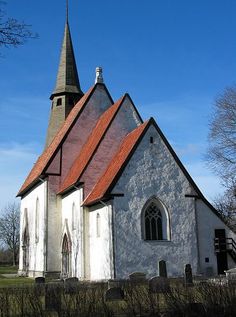
Branden Kartchner
The population of Sweden is approximately 9.5 million. The Church of Sweden, which is a Lutheran sect, is the largest denomination and 67.5% of citizens are members. The Church of Sweden was previously the official state religion, but it was separated from the state in 2000. Since the separation, the number of church members in the Church of Sweden has been decreasing, partly because since 1996 the church has stopped automatically counting children born to at least one Lutheran parent as members.
Other Christian groups, including the Roman Catholic Church, Pentecostal movement, Missionary Church, Jehovah’s Witnesses, and The Church of Jesus Christ of Latter-day Saints total less than 5% of the population. An estimated 15 to 20% of Swedes are atheists; however, the number is likely a lot higher. According to a recent survey, more than 34% of the population does not believe in any sort of God or life force. There are also smaller religious communities including Buddhists, Hindus, Sikhs, Muslims, Zoroastrians, Hare Krishnas, the Church of Scientology, Word of Faith, Muslims, and Jews.
Swedish law calls for religious freedom and the government generally protects religious rights. The Instrument of Government Act forbids discrimination based on religion and mandates that every citizen be granted the freedom of worship. Religion cannot be forced upon anyone and no one can be compelled to discuss religion.
Through the national taxation system, Swedes pay a church tax based upon their religious affiliation. Religious groups that receive tax contributions include the Swedish Missionary Church, Roman Catholic Church, Swedish Alliance Mission, Baptist Union of Sweden, Salvation Army, Methodist Church in Sweden, Pentecostal Church, Jewish Central Council, Islamic Cooperation Council, and the Evangelical Church. Religious groups are only required to register if they want aid from the government and religions are taxed similar to non-profit groups.
The government recognizes religious holidays, but allows citizens to take off their own religious holidays in place of generally celebrated Christian holidays. In addition, there is religious education covering all religions in public schools and religious private schools are available for interested parties.
Muslim immigration has been a growing trend in Sweden and there have been a rising number of both anti-Muslim and anti-Semitic activities—particularly in the city of Malmo. However, the government has been quick to prosecute responsible parties and has effectively installed police hate crime units to deal with religious-based offenses.
Sources: Religion and the State: An International Analysis of Roles and Relationships; U.S. State Department Religious Freedom Report